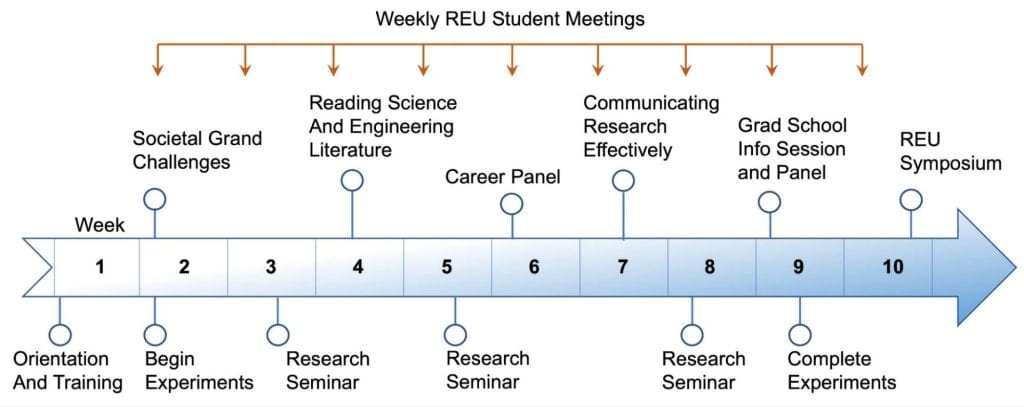Traditionally, the societal impact of research breakthroughs led by electrical and computer engineering (ECE) have been self-contained within the discipline — for example, wireless communications, integrated circuits, the Internet, and smartphones. This landscape is rapidly changing, where the major impact of disciplinary research breakthroughs is manifest through collaborative and multidisciplinary efforts that align with broader global challenges. The Electrical and Computer Engineering Department at the University of Delaware will offer a set of research projects with intellectual exploration that spans the broad range of ECE subdisciplines, while directly aligning with broader impact areas defined by the National Academy of Engineering (NAE) Grand Challenges. In particular, our new UR-ECE (Undergraduate Research in ECE) summer program specifically aims to improve the engineering, research, and communication skills of undergraduate students who have interests in electrical and computer engineering. The program will allow the undergraduate students to gain valuable experience in research, scientific inquiry, and to develop technical and methodological skills to succeed in graduate studies or future career paths. A summary of the timeline of the 10-week program is shown in the following figure.

The goal of the program is to allow each student participant to gradually transition from dependence to independence, so that after the first few weeks, the student can largely perform basic research activities. At the mid-stage of the program, the student can independently conduct experiments, identify issues and handle failures in the experiments, and come up with creative solutions to address the issues while still receiving some guidance from the research mentors. By week 9, the student will start concluding research experiments of the project and finalizing a poster presentation and project report.
Important Dates
- Application Deadline: February 20, 2025
- Notice of Acceptance: March 20, 2025
- Start Date: June 9, 2025
- Duration: 10 weeks
- Lab Tours: mid-June
- Picnic and Ice creams: mid-July
- Research Symposium: August 14, 2025